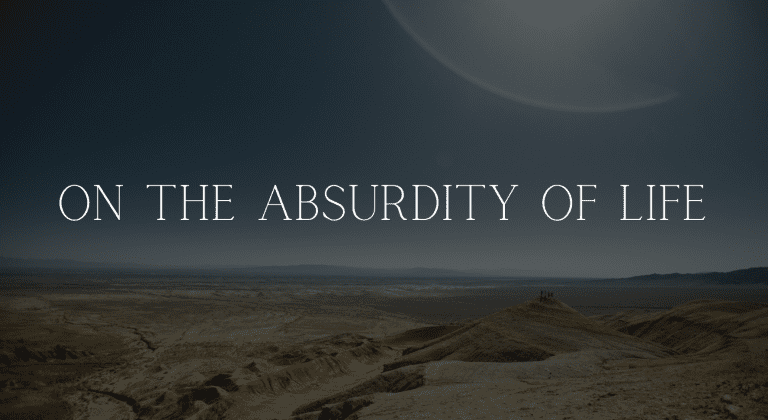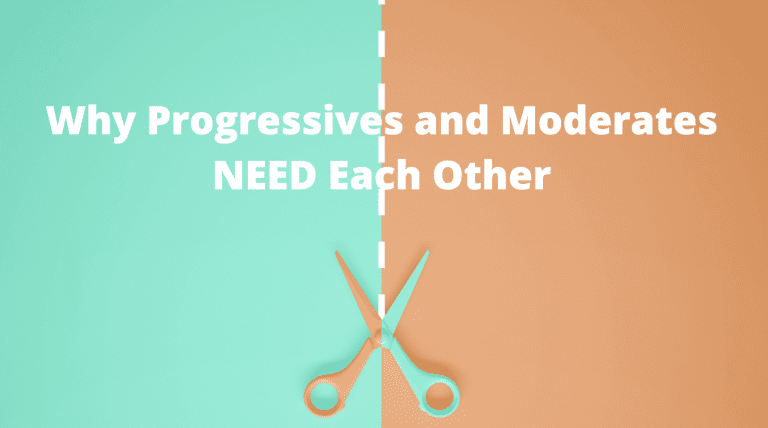A recent article by Rev. Katherine Willis Pershey in The Christian Century explained on womans experience of engaging in sex outside of marriage in a conservative Christian context and then suffering a great deal of shame and pain both from her Christian sexual partners and from her own sense of emotional emptiness following sex. She contrasts these experiences with the experience of sex within her marriage, which she described as healing and deeply fulfilling. At the end of the article, she says that though she understands that there are exceptions, she has returned to the conclusion that sex should be reserved for marriage. In fact, she says it is the “ideal”.
As a queer Christian, I too have experienced this line of thinking among many of my LGBTQ+ Christian peers who still hold tightly to a “traditional” sexual ethic. There seems to be an underlying belief that when we change our approach to Scripture on the topic of same-sex love, we must do everything we can to uphold and maintain the other pillars of a conservative sexual ethic to prove to conservatives that accepting LGBTQ+ people isn’t a slippery slope towards debauchery. We therefore distance ourselves from the broader queer community and their sexual “promiscuity” and try to live into a conservative sexual paradigm.
I won’t for a minute judge either Pershey or my queer collogues for their choice to advocate for sexual expression within marriage alone- I think this is a fine and healthy path for many people. I do, however, think that both approaches are shortsighted from a Biblical and theological standpoint, and that by reinforcing these strict sexual boundaries we will continue to perpetuate sexual shame that has led to such sexual unhealth in conservative Christian contexts. After all, studies show that 80% of unmarried evangelicals engage in premarital sex (Forbes) and the divorce rate among evangelicals is higher than that of the non-religious.
Somewhere, there is a clear disconnect between this “traditional ethic” and the lived reality of most Christian people. Most evangelicals profess this ethic and yet live in contradiction to it, which seems to suggest that perhaps we have lost faith in the validity of claims of the traditional ethic.
I know this is true in my own life. I grew up hearing pastors and youth ministers urging us not to have sex until were married, warning us that if we do, we will give away part of ourselves that we will never get back. That we will feel a deep sense of impurity and brokenness. That we will hurt our chances of finding a godly partner in the future, because no one wants “used goods”. When you hear these tropes over and over again- none of which have even the slightest grounding in Scripture by the way- you begin to believe them at a deep level.
So, when I, as a hormonal young teenage boy found myself making out with my girlfriend and engaging in heavy petting, I immediately felt overwhelming shame. I felt judged by God. I felt like I had irreversibly destroyed my hope for a godly relationship in the future. I would make my girlfriend kneel with me and pray for God’s forgiveness. I remember telling her, “If we keep doing this, I can never be a Pastor! God doesn’t want impure servants.” As I heaped this guilt upon her, she wept and so did I.
However, once the emotional moment of guilt and shame passed, we both often would have honest conversation in hushed tones where we admitted that we felt fine spiritually and physically. When I finally did have “full” sex for the first-time years later, this was again my experience. I was nervous and it wasn’t incredibly fun- but is anyone’s first time? But as I walked out of the apartment of the boy I was dating, I felt…good. I felt that we’d had a good and awkward time, and I actually looked forward to having sex again.
We weren’t in a committed relationship. We weren’t married. And we’d stop seeing each other about a month or so later. And we both were fine. There was truly no sense of shame or brokenness.
As I reflected on this, I began to ask some hard questions of my inherited theology. As I shared my experience with other Christian friends, they too echoed what I had experienced. When I talked to my non-Christian friends, they looked at me like I was insane for thinking that I would feel some sort of brokenness at all after having sex. Years later, I tend to think they were right- it is insane to teach people to expect sex to be shameful or harmful in any context where it is consensual, desired, and being done from a place of health and wholeness.
The truth is that most people in the world have sex outside of marriage. Most people in the world will hook-up with someone at some point in their lives with no intention of having a lasting romantic relationship with that person. And most people will have a positive experience during and after the sexual encounter. If this is true, then we should be drawn back to our tradition and our text to see where we’re missing the mark with our sexual ethic. After all, when reality and your theology clash, it is your theology that needs to change. Theology is a human attempt to comprehend the works of God in the world. As finite beings seeking to understand the infinite Creator, we often fall short in our understanding and reformation is necessary.
When we dig deeply into the Christian tradition and explore what the Church has taught about sex, we quickly see that there has never been a single coherent sexual ethic for Christians. And the ethic that has been most consistent is one that almost no modern Christians would adhere to, best articulated in the Catechism of the Roman Catholic Church, which defines the primary role of sex as procreative and secondarily unitive. Any sexual expression that does not offer the possibility of procreation is therefore sinful.
This means no condoms, no birth control, no sex just for the fun of it, even in marriage. The fundamental belief at the core is that sexual pleasure in and of itself is disordered and seeking sex for enjoyment is a dangerous path to walk down. The Catechism defines lust as “the inordinate enjoyment of sexual pleasure.” In other words, it seems that God has given us the proverbial tree of sexual expression but has told us not to eat of the tree or enjoy the taste of its luscious fruit.
In my estimation, this would make God incredibly cruel. He has made sexual desire a fundamental part of the wiring of humanity, he has given us the ability to have extreme pleasure through engaging in sex but has told us we should rarely engage in any form of sexual expression for the sake of pleasure and without the goal of procreation.
I know of no Protestant Christians that advocate for this rigid understanding of sexuality, and I doubt that many Roman Catholics live by these standards. They aren’t tenable, not because humans are so broken and cannot control ourselves, but because these ethics fly in the face of observable reality, of modern psychology, and of most people’s experience. This so-called “traditional” understanding of sexual ethics severely limits what is understood to be healthy sexual expression and leads, I believe, to deeply unhealthy behaviors in individuals who try to repress their sexual desire to fit in this narrow paradigm.
I believe that sex is intended for procreation. I also believe sex is intended for deepening relationship. And I also believe sex has always been intended to simply be a gift- a way to bring pleasure, release, and joy into our day to day lives. Sometimes sex can do all three of these things at once, and that is an incredible experience (I presume). Sometimes it may fulfill two of these intentions. And sometimes just one. But sexual expression for any of these purposes can be good and healthy.
Sexual expression for any of these purposes can also be damaging- a woman being used by a man just to produce offspring with complete disregard of relational intimacy or her pleasure is a cruel and wicked practice that has been carried out by “faithful men” throughout history. Sex for purely selfish, overly-hedonistic desires can cause us to feel used or abused. At the same time, sex between two consenting individuals for the sake of the pleasure of both people can be an incredibly enriching experience, even when procreation or long-term relational commitment are not the goal.
I know that this is true because I’ve experienced it. I’ve experienced fulfilling sex for the sake of pleasure. I also have experienced the beauty of sex in the context of committed relationship with a partner. And while I’ve never engaged in procreation, I know many friends who have conceived children and talk about how deeply fulfilling that experience it is. These contexts and experiences are different to be sure, but all of them are good. All of them are healthy.And all of them should be advocated for in Christian contexts.
In Scripture there is no clear and consistent sexual ethic. In one place, you see God blessing Kings with many wives and concubines, and in other places we see God rewarding sexual fidelity between two individuals. In one place we read broad condemnation of living in sexual excess, but in another place an encouragement to express our sexual desire in marriage. I think these inconsistencies are intentional, because a person’s sexuality is a unique expression of their God-given identity. No two sexualities are the same. Desires will differ from one person to another.
Some people will find tremendous fulfillment having sex with one person their whole life. Some people will find contentment never having sex at all. And most people, I presume, will experience a fulfilling sex life engaging in a number of these “purposes” for sex- for pleasure, for relational connection, and for procreation. If we teach that these are all appropriate expressions of sexuality, accompanied by the guardrails of general Christian virtues like self-sacrificial love, restraint, moderation, dignity, and respect, I believe we will set people up for a more healthy and holy expression of their God-given sexuality.
What I am not advocating for is a sexual free for all. I do believe that the Scripture clearly and consistently warns us against becoming controlled by lust. I don’t think living a life filled with constant hook-ups with random people is healthy, nor do I think two young people rushing in to marriage so they can have sex is healthy either. Both behaviors seem to stem from an inability to maturely control sexual passion, which admittedly is difficult, but is one of the only clear teachings of Scripture on the topic. Moderation and restraint are the keys to a healthy sexual ethic.
We should always be asking ourselves why we are seeking to express our sexuality- is this out of a centered, healthy place, or is this in an attempt to self-medicate, to fill some deep void within us? If it is for these reasons, then we would do well to refrain and seek more productive ways to find healing. But if we’re engaging because we are seeking to enjoy the good gift that God has given to us from a healthy, respectful, consensual place, we should throw off the weight of shame and engage freely and joyfully in the gift of sexual expression.
Sex is a gift from God that is meant for our joy and God’s glory. When we finally begin to believe that, I believe we’ll begin to see the health and healing that the Church so desperately needs after years of advocating a negative, narrow, and shame-based sexual ethic. Each of us should be free to explore and discover how God has wired us sexually and seek to live according to the values of Jesus and inner-authenticity. For some, that may mean reserving sex for a marriage relationship. For others, that may mean expressing your sexuality more freely. Both have a place in God’s design for sex, and therefore both should be celebrated by the Church.












